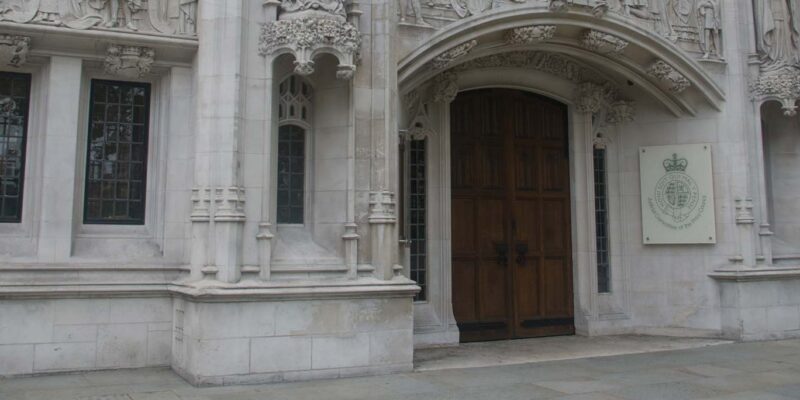Manchester 0161 832 2500 | London City 0204 505 8080 | London Finchley 020 8349 0321
Secure PaymentThe number of Wills being challenged over the past decade has risen consistently, and it is easy to see why.
The stakes are much higher given the increase in house prices, meaning that many people’s assets are now worth hundreds of thousands (if not millions) of pounds. Furthermore, the younger generation is struggling to get on the housing ladder and is increasingly reliant and/or expecting to receive an inheritance to do so.
At this point, you may be wondering what Will disputes have to do with testamentary capacity. The answer is that if a Will is not entered into with full understanding, it may be challenged and be declared invalid.
What is testamentary capacity, and how is it established?
The word ‘testamentary’, in this case, refers to the act of bequeathing through a Will. ‘Capacity’ refers to the cognitive ability of the testator (the person making the Will) to enter into the Will in a way that they fully understand. Hence if a Will is entered into by a person who lacks the mental capacity to comprehend the implications of what is being stated, this would be considered to be a lack of testamentary capacity and will likely render the Will invalid.
If the last Will is declared invalid the estate will be administered under the terms of the previous Will (if one exists) or under the rules of intestacy. This is a formula sued to distribute an estate if there is no will.
Solicitors and other legal practitioners specialising in Wills must check that they are satisfied someone has testamentary capacity when taking instructions for a Will for a client. By doing so, its validity is less likely to be challenged following death.
The risk with online and DIY Wills is that in addition to the lack of professional legal guidance to ensure the Will is drafted to reflect all of the necessary provisions and life scenarios for your situation, it will lack evidence that checks were undertaken to verify capacity. A professional Wills Solicitor will go out of their way to secure the proof needed, including requesting a contemporaneous medical opinion, asking a medical professional to witness the Will, and attaching any other proof of capacity to the Will.
There are two main tests used by the Courts to prove testamentary capacity:
Banks v Goodfellow Test (Case law test)
This common law test relates to the case of Banks v Goodfellow (1870), which used the following criteria to test for the existence of testamentary capacity:
- The testator must understand the nature of making a Will and its effects.
- The testator must understand the extent of the property to which they are disposing of.
- The testator must be able to understand and appreciate the claims to which they ought to give effect (i.e. who can bring a claim against the Will).
- The testator must have no disorder of the mind that perverts their sense of right or prevents the exercise of their natural faculties in disposing of his property by Will.
Despite being over 150 years old, the Banks v Goodfellow test has stood the test of time due to its clarity. The fact it is based on case law principles going back three centuries, and because it covers the elements necessary to establish an all-round understanding of what is being entered into.
The Mental Capacity Act 2005 (MCA 2005)
The MCA statutory test uses five core principles to establish mental capacity, as follows:
- A presumption of capacity – everyone has the right to make his or her own decisions and must be assumed to have capacity unless proved otherwise
- The right for individuals to be supported to make their own decisions – people should be given the necessary assistance before it can be concluded they are unable to make their own decisions
- Individuals have the right to make what might be seen as eccentric or unwise decisions
- Best interests – anything is done for or on behalf of people without capacity must be in their best interests; and
- Least restrictive intervention – anything done for or on behalf of people without capacity should be the least restrictive of their basic rights and freedoms.
The MCA 2005 test for capacity was not intended to replace the Banks v Goodfellow test; rather the intention was to allow judges to make their own decision as to which would be most applicable. However, the High Court case of James v James and others [2018], confirmed that the Banks v Goodfellow test should be applied when assessing mental capacity in relation to making a Will.
Ensuring testamentary capacity for your Will
Establishing testamentary capacity at the time of Will creation will mitigate the potential for it to later be challenged. For solicitors, ensuring their client understands what they are entering into and providing supporting evidence where necessary is a paramount consideration. By failing to undertake this key step, a well-drafted Will, with all elements considered, witnessed, and signed correctly, could be rendered useless via a challenge. Don’t cut corners and allow your Will to be judged invalid due to concerns over capacity – your loved ones deserve certainty that your wishes were made with sound mind and judgment.
If you would like to discuss any of the above issues, please contact our private client department, on our contact page or by email.
Please note that this blog is intended for information purposes only and does not constitute legal advice.


